- Centrica fund fracking company Cuadrilla, to the tune of around $16Mn last year alone
- Fracking funders Centrica own British Gas, who continue to raise their energy prices (£117 increase just announced this week), while cutting jobs, paying eye watering bonuses, and bullying people in their forced imposition of meters.
Hearing Your Side – Your Experience of , British Gas, NIBE, DH, or Cladding.
In the coming months, we are building on previous campaigns, and starting some new ones, so we’re contacting people who got in touch with us for help or to help fight for changes.. In particular, we are looking for your experiences of British Gas, NIBE boilers, District Heating, and Cladding replacement, with a view to pressing for policy changes, and helping when things go wrong.
You can email us back, or post your testimony here.
You might also like to see our recent press coverage on prices, eg here in the Daily Express
On the other hand, if you would prefer not to hear from us again, please just let us know !
British Gas
As you will know, FPA campaigns for energy that is both affordable and sustainable — that doesn’t harm local environments or the climate. On the 22nd February, we will be taking part in a public, family friendly demonstration against Centrica, the company that owns British Gas. They are one of the key companies investing in fracking in the UK. Fracking is facing determined opposition from the communities where it is planned, because of the local pollution (and earthquakes) and because it is awful for the climate..
Last year, while British Gas upped their prices by 5.5%, Centrica pumped nearly $16m into fracking. Fracking will not bring down energy bill prices. Instead, it will speed up global warming, at huge cost to us all.
This won’t be the first time we’ve taken issue with British Gas. In years past, we’ve been to their AGM, and written letters to their CEO, demanding compensation for the thousands of customers who have suffered extortion and bullying at the hands of the company. Complaints have included, amongst other things; forced imposition of prepayment key or card meters, price discrimination, and persistently pressing people for money that they do not owe.
So we’re inviting you to join us at the action on the 22nd. If you have any questions about the action, please get in touch.
But we are also looking to hear your stories about British Gas, past or current, so we can take them with us, and demand the changes we need. If you have experienced an injustice at the hands of British Gas, would you like to speak out about, in your name or anonymously?
NIBE Boilers
NIBE heating is continuing to cause problems for people across the country. Many are told this new system will save residents money, but instead their bills are then three of four times higher than before.
We had some interest from BBC Rip Off Britain in covering this last autumn, but unfortunately, it didn’t happen in the end.
Have you struggled with NIBE Boilers, now or in the past? If you have, please let us know what the problems are, and also indicate whether you might like to speak out about this publicly, in your name, or anonymously.
Cladding and insulation
Despite winning cash from the government to cover replacement of dangerous cladding and insulation after Grenfell, too many people are still living in danger of fire. And many others have had their insulation removed — and are freezing! We are continuing to press the government, councils and housing associations to make sure everyone has compensation for extra high winter bills guaranteed – so all can survive this winter. Some places do have help, others don’t. It shouldn’t be a postcode lottery!
It would really help to hear an update on your building, or any in your area, including any buildings that are too low to qualify for refurbishment, or were clad with a material different from Grenfell’s – some other materials can still be a danger.
District Heating
We’ve been told that our earlier campaigning, together with residents of seven housing estates with a heat network, has made a difference to how new “heat networks” are being brought in now – we certainly hope so! And the government has accepted the need for regulation. But many people are still suffering with expensive, dysfunctional systems that keep cutting out. And leaseholders are still being asked for tens of thousands of pounds upfront, to fund repairs or replacements of their systems. If that’s you, let us know! Policies are being laid down now, and it’s a very good time to put your case forward and get some results.
Whatever your situation – or if you’d just like to help, or take part in the action at British Gas headquarters on 22 February – please don’t hesitate to get in touch — we are really keen to hear from you.
SCIN Update: Minister Replies to Open Letter on Cladding and Insulation
The end of November saw real progress on issues raised in our open letter demanding safe cladding and insulation now.
- One development affects those leaseholders who have until now been told they must pay themselves for their tower blocks to be re-clad – or continue to live in a fire trap. Through our open letter, delivered to the government on 17 October, 150 organisations, trade unions, MPs and experts demanded immediate replacement of flammable cladding for the homes of both tenants and leaseholders – without cost to the residents themselves.
We said, “For private housing, central government must cover the initial costs, and then seek to recover costs from landlords, developers and contractors.“
On 29 November James Brokenshire, Minister for Housing Communities and Local Government, announced that the government would finally provide cash to councils to carry out works on private blocks on the basis that they would have the powers to reclaim it. We have not seen the fine print and there are serious concerns about councils potentially being left to carry the cost from their depleted budgets, or costs being passed on to leaseholders through higher service charges. But if it means what it says, this is a major victory — 18 months late but a huge relief to many. Councils will have new powers to intervene to force re-cladding. The Green Quarter, Manchester, residents who were represented on 17 October have been told their cladding will be replaced.
- Meanwhile work continues on replacing combustible cladding and insulation on council and housing association tower blocks – the latest (November) statistics show 34 such buildings with works complete, and 82 with work started, out of 160 over 18M high with ACM cladding.
- And there is the beginning of movement on other dangers. There are many other kinds of combustible cladding and insulation besides the ACM panels used at Grenfell Tower, yet until now these have been ignored. Now the others are — at least — to be considered for safety assessments.
- On 22 November James Brokenshire replied to our Open Letter, and to points raised by residents when they delivered the letter to his office on 17 October. His reply, below, says, “I want to assure you that the Government is determined that residents should be safe and feel safe in their homes and is acting urgently and comprehensively to make sure this is the case.”
There is however a huge gap between this assurance and reality. Despite the progress detailed above, most demands in our Open Letter have not been met.
- The fire wardens and other measures flagged up in James Brokenshire’s reply are very far from keeping residents safe in buildings waiting for re-cladding. The private contractors responsible are frequently found to be failing: wardens may be too few, badly equipped, sleeping on the job, or just don’t walk the floors.
- Deaths from fuel poverty were up 40% last year, reaching a shocking 15,000. When cladding is removed, most residents are expected to pay themselves for the extra cost of heating an uninsulated flat, and very few are provided with safe space heaters, damp treatments, or offered the option of moving elsewhere if their home cannot be made habitable. Some social landlords are providing some support. FPA are working to establish standards, raising the issue with local authorities and housing associations, through the GLA and with the National Housing Federation. Finally, this issue is at least being recognised in the press. But nothing has been forthcoming from central government — no rules, and no money. In the context of cladding and insulation being off, James Brokenshire’s reference to building regulations’ energy efficiency requirements seems removed from reality. His proposal that residents in these blocks seek advice from the Energy Saving Advice Service (ESAS) suggests that a solution lies in residents investing in energy saving improvements to their flats. Energy efficiency is not possible in a high rise building from which insulation has been removed.
- Many people, like the Westminster housing association resident and the Salford residents who came to MHCLG will still have to wait many months or even years for their combustible materials to be removed and then replaced.
The ban on combustible materials, which will come in on 21 December, is also far from adequate. Among other things,
- It does not apply to existing buildings.
- Fire remains a serious risk in buildings under the arbitrary 18M height.
- Inspections under the HHSRS (Housing Health and Safety Rating System)Tests are “non-intrusive”, so cannot see beneath the skin, and are carried out by Environmental Health Officers with little knowledge of fire safety. Responsibility for further testing can be divided between freeholders and any leaseholders, and can be contracted out. The Fire Brigades Union says, “Fire authorities and local councils need to be fully funded to carry out fire safety inspections now and in the future.”
- Alterations can easily compromise compartmentation – eg changes to heating or electrical systems, or even a tenant or leaseholder fitting a satellite TV system, so no one can be sure that a system that was tested will remain safe.
- The cladding and insulation that are now being installed are not necessarily safe. The exposure of toxicity in the ground and water in a large area around Grenfell has highlighted an issue with far-reaching implications. Toxic fumes from permitted materials can kill in just 30 minutes. And even when they are NOT being burned, many current building materials have devastating effects on health, particularly but not only affecting unborn children. “Safe cladding and insulation” must be chemically safe as well.
Finally, James Brokenshire says “the Government is committed to delivering lasting change with residents having a much stronger voice in an improved system of fire safety.” The Social Housing Green Paper to which he refers does indeed “include options to address these concerns.” But it is hard to take these seriously while we see tenants and residents associations being routinely locked out of their communal rooms, or threatened by their social landlord when they attempt to petition or organise. The Salford residents who came with us to present the Open Letter have been among those being bullied this way. It was just that sort of treatment of residents that led to the Grenfell fire. We have seen no government proposals to deal with such disempowerment and intimidation.
The progress made shows that it is possible to win — but we are a very long way from safety. Here is James Brokenshire’s reply.
We will be in touch with next steps in the New Year.
Meantime, have a happy holiday!
Ruth London
Government bows to pressure on leaseholders’ cladding costs! Now for protection from cold.
For 18 months thousands of leaseholders in high rise buildings have lived in fear of fire, financial ruin, or both, as freeholders, developers and the government have debated who should pay for re-cladding buildings with Grenfell-style walls.
In October, FPA presented to the Ministry of Housing Communities and Local Government an open letter signed by nearly 150 representatives, including leaseholders, tenants, trade unions, and 28 MPs from four parties, demanding immediate replacement of flammable cladding for the homes of both tenants and leaseholders – without cost to the residents themselves.
We said, “For private housing, central government must cover the initial costs, and then seek to recover costs from landlords, developers and contractors. “
This week’s news that “the government will now provide cash to councils to carry out works on private blocks on the basis that they would have the powers to reclaim it” (Councils cleared to rip Grenfell-style cladding from private buildings“, Guardian, 29 November) appears to accede to that demand, and residents are – cautiously – hopeful. Beverley Reynolds-Logue, a Green Quarter, Manchester representative who was among the residents meeting the MHCLG with the Open Letter in October, says, “I think this is good news! Let’s hope they stick to their word. Thank you so much for involving our group in Green Quarter in all that you’ve done on this issue.”
But while insulation is off the buildings – in social or private housing – residents must not be left to freeze this winter. FPA’s Open Letter also demanded a guarantee that these residents living in buildings with cladding removed will not pay more for using extra energy to heat their homes, and will have access to extra provisions for warmth, including safe space heaters and damp and mould treatments. Where homes cannot be made fit for habitation, alternative local housing should be offered. The government must ensure that people affected by this disastrous failure of building regulations do not add to the thousands who, every winter, die because they cannot heat their homes — a death toll that leapt by 40% last winter.
On 22 November James Brokenshire wrote to us in response to our Open Letter, “. . . The Government expects landlords to protect residents, where possible, from any disruption caused by the removal and replacement of unsafe cladding and to communicate with them regularly during this process. That includes programming and sequencing their work, in consultation with residents, to ensure that people are not unduly exposed to cold”.
However there is no government policy to provide funds for this purpose, or to enforce legal standards for habitable homes. Winter is upon us. This cannot take another 18 months.
Report of SCIN Day of Action – Safe Cladding and Insulation Now! – 17/10/18
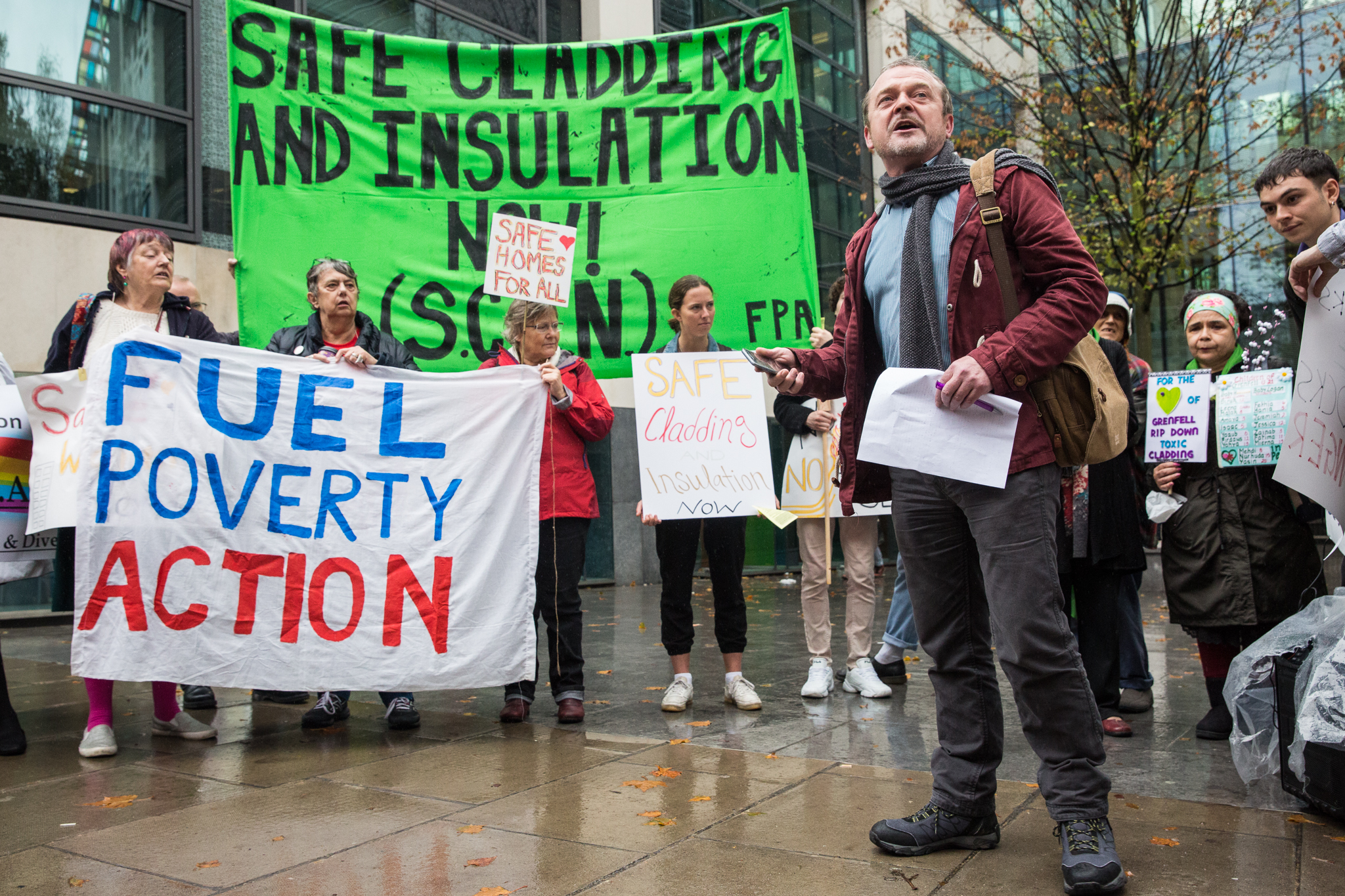
Sixteen months after the Grenfell fire, 50 people stood together in the the rain, outside of the Ministry for Housing, Communities and Local Government (MHCLG), to deliver an Open Letter that demanded safe and warm tower block homes. The demonstration was organised by Fuel Poverty Action (FPA). Many of those who came, spoke out.
Speakers included residents living with Grenfell-style cladding, people from the Grenfell community, and supporters. The speeches covered a wide range of issues, including the plight of children at Grenfell, the needs of disabled people in high rise blocks, and the threat of climate change and associated extreme cold weather to residents whose insulation has been removed. The common thread of safe and warm homes tied it all together, and many, including the Fire Brigades Union, Unite Housing Workers and other major trade union bodies, pledged their support to the campaign for Safe Cladding and Insulation Now (SCIN). This support lays bare the outrage felt because thousands are still living in tinderbox homes or homes that are freezing, mould-ridden and expensive to heat when winter comes.
When the speeches were through, the letter was unrolled. Now standing at nearly 150 signatories, which includes 28 MPs from four major political parties, 5 national trade unions, 20 other union bodies and branches, NUS, 5 councillors, 44 housing and Grenfell-related groups, 16 poverty and discrimination organisations, 15 environmental and anti-fracking groups and many others, the letter carried real weight. Three people living with Grenfell-style cladding and a member of FPA walked into the MHCLG to hand-deliver the letter. The group spoke with a civil servant from the department, who took down details of specific affected towers, listened to the grievances of the residents and promised that the letter would arrive on Secretary of State James Brokenshire’s desk that day. FPA are awaiting the promised swift response.
Following the hand-in, the demonstrators marched to the House of Commons and held a two hour long meeting, including Emma Dent Coad, the Grenfell MP, Rebecca Long-Bailey MP, Shadow Secretary of State for Business, Energy and Industrial Strategy, and Alison Stoecker, secretary to John McDonnell MP. Residents and MPs declared their commitment to the campaign and discussed how to – together – force action to ensure that residents are protected both from fire and from cold.
The last event of the Day of Action – 17th October – was a crowded tenants and residents meeting called by Southwark Group of Tenants Organisations. Held to highlight the lack of accountability in councils and the way tenants organisations are increasingly disempowered, beaten down, and deprived of resources when they try to campaign for better housing conditions, the event echoed some of the demands of the Open Letter. As the Hackitt Review into the Grenfell fire acknowledged, it is residents who hold the key to housing safety.
Whilst FPA and SCIN campaign supporters demonstrated in London, Right to Energy Coalition held a solidarity action outside of the British embassy in Brussels. Marking this as a transnational Day of Action and just one of many steps to achieve safe and warm tower block homes for all.
Media coverage includes:
The Daily Mail
Worcester News
Salford Star
Radio London with Vanessa Feltz
Morning Star (article included as a picture below)
Manchester Evening News and many many others!
Also:
Please see excellent videos of the day produced by Reel News →
3 minute version
9 minute version
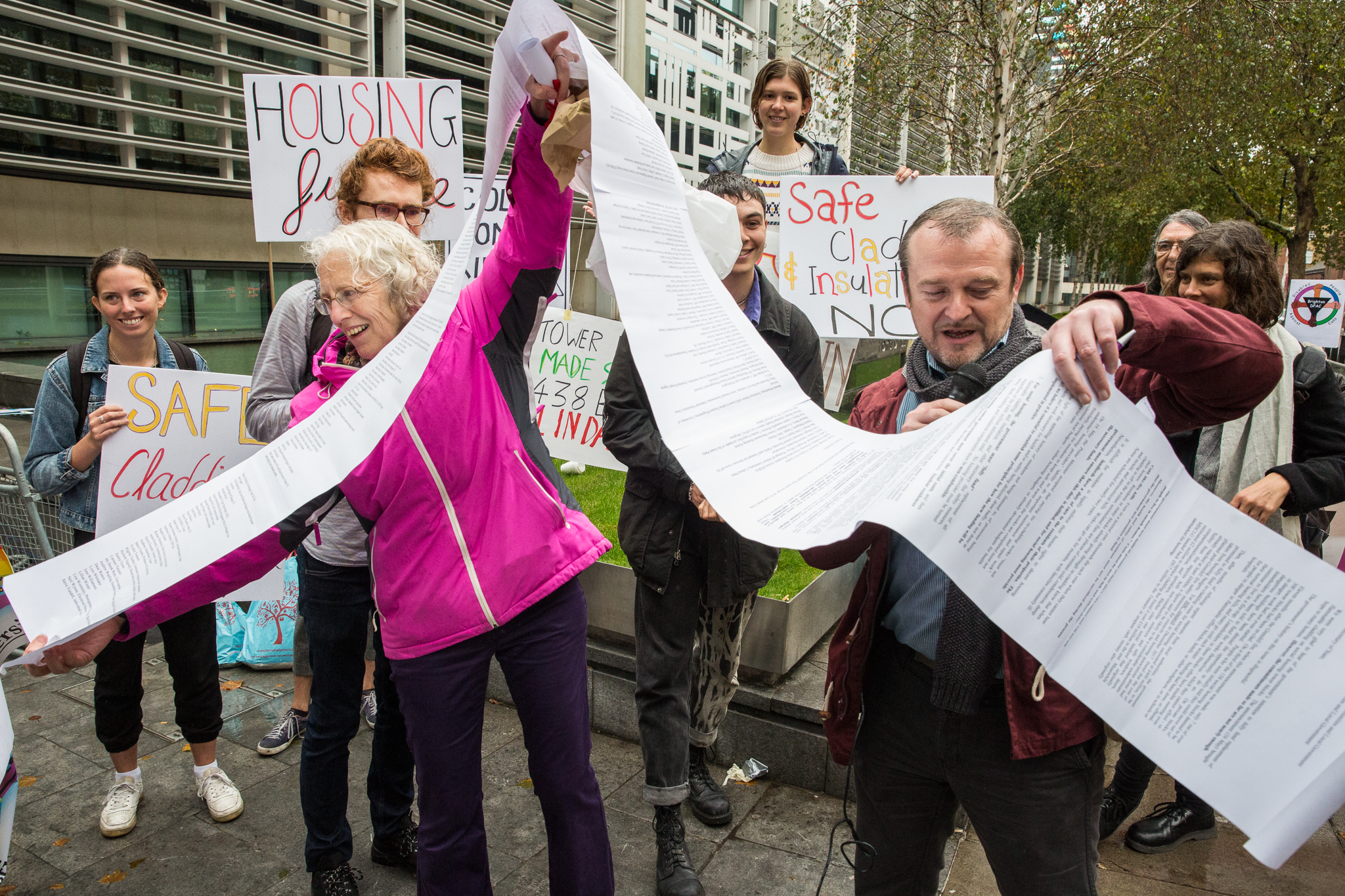
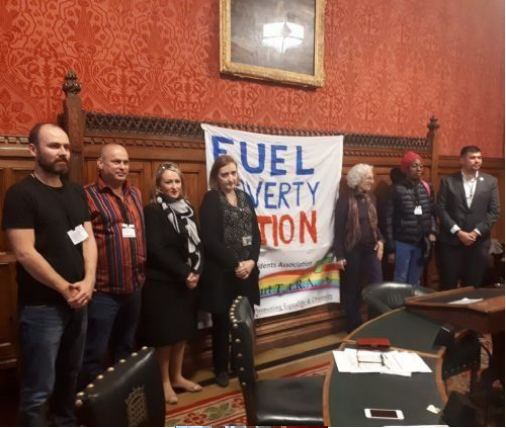
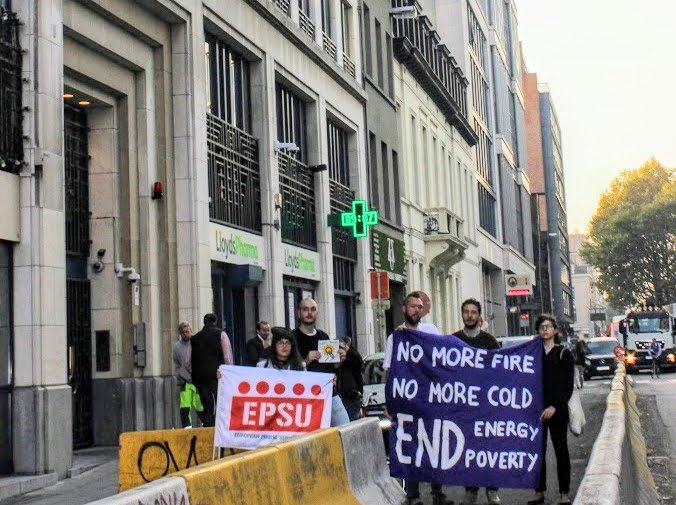
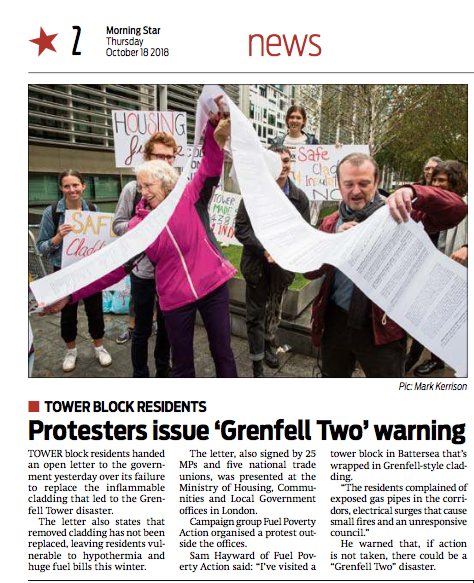
Vital questions Grenfell inquiry must not duck – our letter in The Guardian
The Guardian have published FPA’s letter about housing safety post Grenfell. Read it here https://www.theguardian.com/uk-news/2018/jun/10/vital-questions-grenfell-inquiry-must-not-duck
17th May Mini-Guide Launch at Crossroads Women's Centre
THURSDAY 17 MAY sees the launch of the second edition of FPA’s popular “Mini-Guide” to fuel customers’ rights in dealing with predatory energy suppliers. Now updated and expanded to include short sections on district heating and on landlords, the Mini-Guide is easy to read and down to earth, and it tells you what works — not what “should” happen.
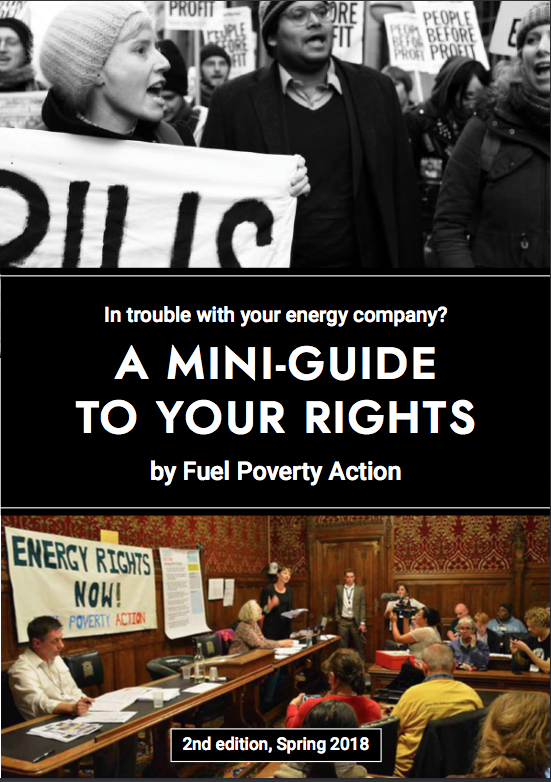
Please join us to pick up your free copy, consider who you know that might find it useful, and hear from experts on the value of good information:
- Paul Nicolson, redoubtable defender of rights, from Taxpayers Against Poverty
- Eliza Takaedza, member of the All African Women’s Group, who recently won a new boiler
- Paula Peters from DPAC (Disabled People Against Cuts)
- Ellen Lebethe, from Lambeth Pensioners Action Group (LAMPAG) and co-chair of National Pensioners Convention (NPC)
There is no need to register but please try to let us know if you can make it.
7 – 9 pm
Thursday 17 May
Crossroads Women’s Centre, 25 Wolsey Mews London NW5 2DX (off Caversham Road)
Fully wheelchair accessible.
Tea and cakes.
This event will replace FPA’s regular monthly meeting but there will be time as well to discuss what is happening in our new post-Grenfell “SCIN” campaign for Safe Cladding and Insulation Now. SCIN is fighting for the people in high-rise blocks who’ve been left with flammable cladding, and for the others, who’ve had cladding removed, and will be freezing again next winter. There is growing support, and all sorts of possibilities!
Freezing cold in rural Northumberland
There is little recognition of what is happening to people who are not on the gas grid and cannot afford to heat their homes. FPA have received several emails from a father of two children Northumberland, who has agreed for us to share his story. He lives in a stone farm cottage high up in the hills, now covered in snow.
“The warm home payment scheme doesn’t cover oil and many rural homes like ours are 100% oil heating and water heating
Unfortunately we are in the teeth of this storm, here, we are effectively in the ‘red warning zone’ as we are only 15 miles from the border and the red zone ends at the border – it’s -8 with a wind chill of -12 and it’s blowing a gale, with the blizzard you can’t see 10 feet outside.
We’re warm enough but caning through our oil. I know some people have run out and the tankers can’t get through. We’ve used about a week’s supply in a 2 days because we are all in the house, the kids schools are closed and have been for most of the week, We have enough coal and wood to last until tomorrow morning, then I am going to have to head into the woods with the axe. There’s no way the coal lorry can get up the hill.
Many of us here by now had run down their fuel stocks – we had our last open fire around the 3rd March last year and didn’t light it again until the end of September because of this coal is getting tricky to find, if you can get to the filling station, and of course, it costs 4 times what the coal merchant charges and that for poor quality coal.”
If you or somebody you know is in a similar situation please contact us at fuelpovertyaction@gmail.com . We will do all we can to provide advice and campaign on your issues.
For more information about the cost of fuel in rural areas and the lack of insulation in old rural buildings, see more from Richard here.
**URGENT: Due to the weather our monthly meeting has been postponed. We apologise for the late notice. **
The meeting will now take place at 7pm on the 15th March at The Women’s Centre, 25 Wolsey Mews, Kentish Town, NW5 2DX. We hope to see you all there!

